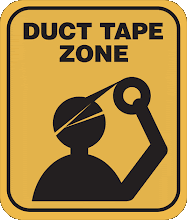First, Cryptocurrencies are fine in my book, they have their uses and their place. However, they will never, not ever, replace physical "currency". Whether you barter colored bits of paper, shiny metal coins or your old jogging shoes, there will always be "currency". Puerto Rico is currently experiencing what happens to electronic currency (ATM's) when the power goes out. Granted, as long as your smartphones are still powered up and you and your client have Bluetooth, you can still exchange Bitcoin and other Cryptocurrencies.
What I'm finding both amusing and scary at the same time is the idea of bundling everything into a chip that is inserted under your skin. How do I define "everything"? Imaging that this chip looks very much like the chip you insert into the scanner today at the local "Try-n-Save". On it resides your "debit card" data. You purchase food, pay tolls, and even identify yourself by waving your hand, or otherwise chipped body part over the reader. Sounds convenient, yes? One need not imaging this as it already exists and thousands of people have already had these installed. Several corporations in Sweden, India, England, and the United States have already started doing this for "security" reasons, among many. These people can even pay for their snack goods at the local corporate vending machine by waving their hand at it. Over 1 billion "B" Indians have already had biometric coding associated with their fingerprints and retinal scans...this is not coming folks, this is here...NOW.
The parts that begin to concern me on this, in no particular order:
- The chipped individual gains access to specific and predetermined areas of the corporate building with this chip.
- They gain access to parts of the computer network based on the security authorization granted to the chip.
- The company knows where you have been...it also knows were you are...
- These chips are not passive, they emit an EM field, this is how the sensors recognize your hand waving. This means you can be followed, in real time, about your business.
Things this good are always shared by companies and the local government. Imagine the company selling your RF tag frequency to other companies that want to sell you something. Imagine the targeted marketing that can happen when Quilted knows how often you go to the bathroom. Imagine the speeding ticket when the low Earth orbit satellite catches your RF tag number traveling 65 in a 45 mph zone?
Some good can come from this as well, though. Your medical history and data can be stored here, or at least the access codes for that data. It can also all be stolen from you as well. Imagine your tax refund depositing directly to your chip tag as soon as you file the paperwork, now that's cool. It can also garnish your wages and take fees from you without you even authorizing it as well...remember, digital currency can be granted or taken away with a keystroke.
What made me want to write this, though was a flash thought that popped into my head. Imagine a police murder mystery show set in 2025. Scene opens on a janitor coming into work in the morning and finding a person dead on the floor, she reaches for the wall phone only to find a policeman standing in the doorway. See, the biometric chip reported that the victim's heart stopped and this triggered the police to come and investigate. The policeman waves the janitor away, telling him that he'll have this case solved in no time. Pulling up the biometric tag data for the victim, he establishes the time of death to within one or two minutes of actual. He then pulles up ecounter data to determine how many other tags were near him in the last 15 minutes of the victims' life. The computer immediately gives him names and current locations of all the suspects. Driverless pods are dispatched to those locations to pick the suspects up. Each suspect has been given an AI generated call to their smart devices informing them of the incident, their compliance is legally required. They all arrive on the scene within 30 minutes or so and the policeman then taps a few more keys on his pc pad. All the smart devices in that room upload their visual scanning for that period of time and several catch one of the present suspects arguing with and then striking the victim with a heavy, blunt object. Visual and audio are included and because of multiple angles, a 3D representation can even be reconstructed. Case closed before the first commercial break.
This technology starts out about creating a cashless society, then morphs into something Orwell could not have dreamed up no matter how high a fever he may have had.
Think on it and ponder other how other aspects of today's life can be observed, regulated, and punished with just a few keystrokes.
Live well.
Zavost

